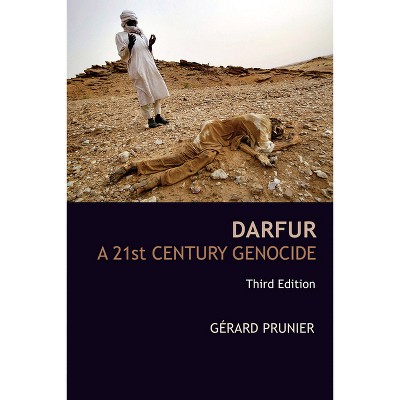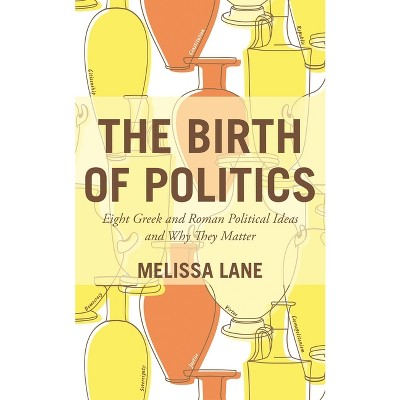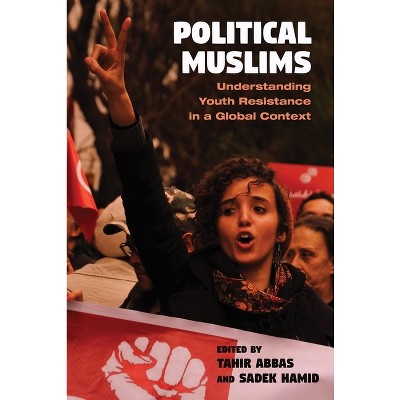Sponsored

Global Counter-Terrorism - by Sagnik Dutta & Tahir Abbas & Sylvia I Bergh (Hardcover)
In Stock
Sponsored
About this item
Highlights
- This collection aims to inaugurate a new direction in research on counterterrorism by exploring global connections - both in terms of practices and discourses, as well as shared ideas and epistemes - that animate counterterrorism practices.
- About the Author: Sagnik Dutta is an Associate Professor at Jindal Global Law School, OP Jindal Global UniversityTahir Abbas is a Professor of Radicalisation Studies at the Institute of Security and Global Affairs, Leiden UniversitySylvia I. Bergh is an Associate Professor in Development Management and Governance at the International Institute of Social Studies, Erasmus University Rotterdam, and Senior Researcher at The Hague University of Applied Sciences.
- 304 Pages
- Political Science, Terrorism
Description
About the Book
This collection proposes a novel contribution to counterterrorism studies by challenging Eurocentrism and methodological nationalism in existing approaches. It explores how colonial epistemes shape everyday practices of counterterrorism.Book Synopsis
This collection aims to inaugurate a new direction in research on counterterrorism by exploring global connections - both in terms of practices and discourses, as well as shared ideas and epistemes - that animate counterterrorism practices. The chapters - grouped under the themes of postcoloniality and coloniality, and entanglements of the transnational and the local, and counterterrorism and right-wing extremism - are attentive to global connections and are mindful of the complexities of global historical processes that constitute the politics of counterterrorism. This book aims to bring together scholars studying counterterrorism in the global North and the global South to explore convergence and divergence in how counterterrorism policies function in a range of national and local contexts.
The Introduction is available Open Access on manchesterhive.From the Back Cover
'This edited collection is as timely as it is impressive. It showcases the work of international scholars working across a diverse range of disciplines, affording unusual breadth as well as remarkable depth. The book not only interrogates dominant approaches toward the study of terrorism and prevention of politically and religiously motivated violence from within the West, it proposes alternate and more inclusive perspectives, drawing across detailed case studies from countries in the Global South. In both charting and challenging the rise and consolidation of colonial epistemes in studies of terrorism, this landmark text will serve as a crucial inflection point. A must-read.'
Gabe Mythen, Professor of Criminology, University of Liverpool
Charlotte Heath-Kelly, Professor of Politics and International Studies, University of Warwick Twenty years since the 9/11 terror attacks and the start of the global war on terror, counter-terrorism policies in multiple iterations continue to permeate everyday life across the world. Yet, there is little scholarship that draws out the conceptual links between the practice of counter-terrorism in the global North and the global South. Inspired by decolonial approaches to the study of politics and international relations, this collection aims to unsettle the Western, Eurocentric hegemony in scholarship on counter-terrorism. It illustrates how counter-terrorism policies and practices are closely tethered to particular negotiations with imperial legacies and colonial modes of knowledge about the law, politics and terror.
Review Quotes
'This edited collection is as timely as it is impressive. It showcases the work of international scholars working across a diverse range of disciplines, affording unusual breadth as well as remarkable depth. The book not only interrogates dominant approaches toward the study of terrorism and prevention of politically and religiously motivated violence from within the West, it proposes alternate and more inclusive perspectives, drawing across detailed case studies from countries in the Global South. In both charting and challenging the rise and consolidation of colonial epistemes in studies of terrorism, this landmark text will serve as a crucial inflection point.
It is rare to find a collection that seamlessly blends together contributions from seasoned scholars with those offered by exciting and talented upcoming researchers. Further, this enterprise yields novelty and originality, as both conceptual and policy focussed similarities and differences are illuminated between the global North and the global South.
A must read for academics, policy makers and those with a keen interest in security politics and international relations.'
Professor Gabe Mythen, Department of Sociology, Social Policy and Criminology/School of Law and Social Justice, University of Liverpool
Refreshingly, this important volume draws upon case studies from Egypt, India, Pakistan, as well France, Norway, Britain and the USA - decentring 9/11 and highlighting the colonial matrix of power which structures policing, racialised othering, and counterterrorism powers across the globe.
Happily, the volume also takes a pluralist approach to theory and method, with feminist analyses, framing theory and discourse analysis making appearances alongside decolonial approaches. A wonderful and varied volume which should make an appearance on every course list.'
Professor Charlotte Heath-Kelly, PAIS, University of Warwick
About the Author
Sagnik Dutta is an Associate Professor at Jindal Global Law School, OP Jindal Global University
Tahir Abbas is a Professor of Radicalisation Studies at the Institute of Security and Global Affairs, Leiden University
Sylvia I. Bergh is an Associate Professor in Development Management and Governance at the International Institute of Social Studies, Erasmus University Rotterdam, and Senior Researcher at The Hague University of Applied Sciences.
Shipping details
Return details
Frequently bought together
Trending Non-Fiction

















